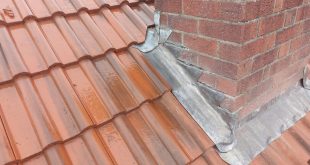Owning a buy-to-let property in the UK can be a profitable investment, but it comes with its share of tax obligations. With changing tax regulations and multiple reliefs available, many landlords wonder if they’re maximizing their tax savings. This is where a personal tax accountant can play an essential role, helping property owners understand, navigate, and apply various tax reliefs effectively. Let’s explore how a tax accountant can make a difference in securing tax relief for buy-to-let properties.
What Is Buy-to-Let Property Tax Relief?
In the UK, tax relief for buy-to-let properties refers to specific deductions landlords can claim to reduce their taxable income. These reliefs are designed to offset expenses such as mortgage interest, property maintenance, wear and tear, and capital gains upon selling a property. For landlords, understanding and maximizing these tax reliefs is crucial to maintaining profitability.
Role of a Personal Tax Accountant for Property Owners
A personal tax advisor in the uk is a tax expert skilled in managing and optimizing individual tax situations. They assist landlords in navigating the complexities of property tax laws and identifying which tax reliefs they qualify for. With a tax accountant’s guidance, landlords can make informed decisions that maximize their deductions and avoid costly errors.
Types of Tax Relief Available for Buy-to-Let Properties
There are several tax reliefs available to buy-to-let landlords in the UK. Here are the primary reliefs:
Mortgage Interest Tax Relief
Mortgage interest used to be fully deductible for buy-to-let properties, but recent changes mean landlords now receive a tax credit equivalent to 20% of mortgage interest payments. A tax accountant can guide landlords on leveraging this relief to its fullest extent, even under the new restrictions.
Wear and Tear Allowance
The wear and tear allowance covers expenses related to replacing furnishings, such as carpets, curtains, and furniture. Accountants help landlords understand which items qualify and ensure these costs are deducted from taxable income.
Maintenance and Repair Costs
Expenses for maintenance and repairs are generally allowable as deductions, provided they are revenue expenses rather than capital expenses (which enhance the property’s value). A tax accountant helps landlords distinguish between the two, ensuring only valid claims are made.
Capital Gains Tax (CGT) Relief
When selling a buy-to-let property, landlords are liable to pay capital gains tax on profits. However, reliefs like Private Residence Relief (for partial residence properties) or the 2023 CGT allowance can reduce the tax burden. Tax accountants are skilled at identifying and applying CGT relief strategies, helping landlords minimize their tax liabilities.
Inheritance Tax Planning for Property Investors
Buy-to-let properties can be subject to inheritance tax, affecting beneficiaries significantly. Accountants can assist with strategies like gift planning or trust structures, allowing landlords to manage inheritance tax implications and potentially reduce the tax burden for their heirs.
The Value of Tax Planning for Landlords
Long-term tax planning is an invaluable strategy for buy-to-let landlords. Personal tax accountants analyze each client’s financial situation, advising them on ways to structure their finances for optimal tax efficiency. This proactive approach often results in significant tax savings over time.
Potential Savings Through Professional Tax Advice
Case studies demonstrate the substantial savings landlords achieve through tax planning. For example, a landlord may save thousands by correctly claiming all allowable reliefs. Accountants can identify opportunities that DIY tax filers might overlook, leading to considerable tax savings.
Common Mistakes Landlords Make in Tax Relief Claims
Errors in tax relief claims are common, often due to a lack of understanding of allowable expenses or failing to document expenses properly. By working with an accountant, landlords can avoid these pitfalls, ensuring every possible deduction is claimed correctly and legally.
Why DIY Tax Filing Might Not Be the Best Option
Filing taxes independently can lead to missed deductions and avoidable errors. While DIY filing may save initial costs, a personal tax accountant can uncover deductions that more than make up for their fee, enhancing landlords’ overall tax efficiency.
How to Find a Qualified Tax Accountant in the UK
To find a competent tax accountant, look for qualifications such as Chartered Accountant (CA) status or membership in professional bodies like the Association of Taxation Technicians (ATT). Asking for recommendations from fellow landlords or reading client reviews can also help ensure a trustworthy choice.
Conclusion
For UK landlords, understanding tax relief options is essential to managing the financial side of buy-to-let properties effectively. A personal tax accountant provides expert advice, ensuring landlords maximize all available reliefs, reduce tax liabilities, and avoid costly mistakes. In a market where tax regulations are constantly changing, professional guidance can mean the difference between substantial savings and missed opportunities.
FAQs
How much does a personal tax accountant charge for buy-to-let tax advice?
Fees vary but typically range from £100 to £300 per hour, depending on complexity and location.
What documents are needed to claim tax relief on buy-to-let properties?
Required documents include mortgage statements, receipts for repairs and maintenance, and proof of rental income.
Can I claim tax relief on properties outside the UK?
UK tax law generally only applies to UK-based properties, but a tax accountant can advise on international property rules.
What is the process for claiming capital gains tax relief?
The process involves calculating profits from the property sale and applying eligible reliefs, best handled with an accountant’s guidance.
How often should I review my tax relief options with an accountant?
An annual review is recommended, especially as tax laws change frequently and can impact available reliefs.
 Diverse Perspectives: Insights & Stories Exploring Ideas, Sharing Knowledge
Diverse Perspectives: Insights & Stories Exploring Ideas, Sharing Knowledge





